This article was co-authored by Chad Denman. Dr. Chad Denman is a Sleep Medicine Provider and is the Owner of Sleep Cycle Center in Austin, TX. With over ten years of experience and over 500 hours of Continuing Education in Sleep, he specializes in identifying and offering multiple treatment options to patients suffering from sleep issues. Additionally, he previously treated patients as a general dentist for over a decade! Dr. Denman completed his Doctor of Dental Surgery degree at Marquette University and earned an undergraduate degree in Exercise Physiology from Florida State University. He’s also a member of the American Academy of Sleep Medicine (AASM), the American Dental Association, and the Academy of General Dentistry. In addition, Dr. Chad is the Director of Doctor Success for the International Academy of Sleep (IAOS). There, he coaches other dentists on how they can become healthcare entrepreneurs and lectures nationwide on the importance of treating sleep apnea.
There are 16 references cited in this article, which can be found at the bottom of the page.
This article has been viewed 190,691 times.
Sleep is very important to overall health and well-being. For many people, however, sleep does not always come easily. If you're having trouble falling asleep, you may begin to worry about being poorly rested and not being able to function the next day. You may start obsessing over the number of hours of sleep you will get or staring at your clock. Ironically, this stress can make it even harder to fall asleep! In order to get out of this vicious cycle, you need to deal with any stress and anxiety in your life, learn how to calm your mind before bed, and make sure your bedroom is optimized for good sleep.
Steps
Dealing with Anxiety
-
1Keep a journal.[1] Try thinking about everything that bothers you and putting it on paper every day. Divide your worries into things you have already dealt with and things that you have a plan for dealing with. While you write, imagine that you are physically removing all these worries from your mind and placing them on the paper. This will help you put your worries away at the end of the day.[2]
- Try not to leave any of your worries completely unresolved so you're not thinking about them in bed at night.
- If you worry about things that are out of your control, write those down too and tell yourself you're discarding them.
- Do not write in your journal right before bedtime. You want to give your mind a bit of time to relax and forget about the worries that you have written down.[3]
- Try keeping track of your daily habits, like the foods you ate and how much exercise you got, to track what affects your sleep.[4]
-
2Calm your mind with exercise. Exercise is good for your body and your mind! If you suffer from anxiety, try incorporating at least 30 minutes of physical activity into your daily routine. This simple lifestyle change can help your body cope with stress.[5] [6]
- Try to avoid stimulating exercises right you go to bed. It is best to give your body a few hours to wind down between your workout and your bedtime.
Advertisement -
3Confront your worries. If your mind is racing with anxieties or obsessive thoughts, sometimes the best thing to do is to acknowledge their existence and actively work to dismiss them. The next time you find yourself worrying about something for no reason, take control by telling yourself that it is an obsessive thought and encouraging yourself to rise above it. Then distract your mind from the thought by finding a task or another thought to occupy yourself with.[7]
- Try repeating something like: "I am having an obsessive thought about _____. There is no need for me to worry about _____, so I will think about _____ instead.
- It may also help to take a moment to analyze your worries and think about all of the reasons why they are not productive things to worry about.
- You can try incorporating something like "It is not worth my time to worry about _____ because _____" into your mantra.[8]
- If you encounter a legitimate worry that genuinely requires action, focus your energy on brainstorming possible solutions to the problem.
- Once you have come up with a solution, tell yourself, "I no longer need to worry about _____ because I have made a plan for dealing with it."[9]
-
4Desensitize yourself to the unknown. If you are worrying about the uncertainty of the future, try repeating the worry to yourself several times. As you do so, tell yourself that you don't know what will happen in the future, and that you're okay with that uncertainty. Eventually your mind will become more comfortable with the thought you are having and will move on to other thoughts.[10]
-
5Let yourself be emotional. Your worries may stem in part from your resistance to showing other emotions, such as anger or sadness. Don't be afraid to talk about your feelings, or to cry when you feel sad. Releasing your emotions like this will help you feel much better![11]
- While it's important to acknowledge your emotions, it's also important not to allow yourself to dwell on negative feelings, as this can lead to more anxiety.
- Once you've acknowledged how you're feeling, try to do something to lift your emotions.
- If you're in bed, try thinking about something that makes you happy to improve your mood.[12]
-
6Get treatment for depression and anxiety disorders. Many people who suffer from chronic insomnia also suffer from clinical depression or an anxiety disorder. While doctors do not know for sure if one causes the other, there does seem to be some correlation. If you can manage the symptoms of your depression or anxiety, either with drugs or with therapy, you may have a much easier time falling asleep.[13]
-
7Seek therapy for chronic insomnia. You might benefit from cognitive behavioral therapy if you have a difficult time falling asleep on a regular basis, even if you don't suffer from depression or anxiety as well. This kind of treatment will help you recognize the causes of your insomnia and change your thinking patterns to help you fall asleep more easily.[14]
Calming Your Mind at Bedtime
-
1Establish a relaxing routine.[15] It is important to get your body accustomed to a regular sleep schedule, particularly if you tend to have a hard time falling asleep.[16] Try going to sleep and waking up at the same time every day. Following a regular routine for at least 30 minutes before your bedtime will help your mind and body prepare for sleep.[17]
- Your routine should be relaxing. Choose something that will keep your mind off of the worries of your day, but will not overstimulate you.
- Reading, playing a game, stretching, or working on a craft project are all great options.
- If you need some extra help getting rid of your worries, give yourself some time right before bed to indulge in an activity that you find truly relaxing.[18]
-
2Unplug and dim the lights.[19] Exposure to bright lights late in the day can disrupt your natural circadian rhythm. Try to avoid watching television or using your computer for at least 30 minutes before you go to bed. It's also best to begin dimming the lights in your house several hours before you go to bed so that your body realizes it is nighttime.[20] [21]
- If possible, rid your room of sleep-disrupting lights from electronics like clocks and televisions.
- If you wake up in the middle of the night, avoid turning all of the lights on, as this may make your body think it is time to be active.
- To enhance your body's natural circadian rhythm, try to expose yourself to as much natural light as possible during the day.
-
3Don't obsess over sleep. While it is important to get adequate sleep, it is also important to recognize that one poor night of sleep will not cause you any harm. If you can't sleep, try reminding yourself that you will still be fine the next day instead of dwelling on the consequences of sleep deprivation.[22]
- Watching the clock will only worsen your anxiety, so avoid doing so at all costs.
- While the occasional poor night of sleep will not harm your health, chronic sleeplessness might, so seek medical help if you have chronic insomnia.
-
4Distract yourself. Sometimes your brain just needs to focus on something relaxing in order to fall asleep. If you find your mind dwelling on your worries, redirect your thinking by practicing one of the following exercises:[23]
- Think about a happy memory or a favorite story and silently rehearse the story to yourself in as much detail as possible.
- You can also focus on an everyday object and attempt to describe it to yourself in vivid detail.
- Focus all of your attention on the natural rhythm of your breath and try to visualize your breath entering and exiting each part of your body.
- Try to think of as many items that fit into a certain category as possible, like all of the animals that start with the letter A.[24]
-
5Get up if you can't sleep. If you have been lying in bed for a long time and are unable to fall asleep, it's better to get up than to lie there worrying. Try moving to a different room and engaging in a relaxing activity, such as knitting or reading, until you feel tired.[25]
- Remember to keep the lights as dim as possible and to avoid dwelling on the negative consequences of not getting enough sleep.
Creating a Relaxing Sleep Environment
-
1Prepare your body for sleep. Some people find it helpful to take a warm shower, bath, or sauna before bed. This triggers your body's natural response to cool itself, which will help you fall asleep.[26]
- Try using soothing aromatic bath oils such as lavender.
- Wear comfortable pajamas that are made of a material that will wick moisture away from your body, like cotton.[27]
-
2Make your room comfortable. For the best sleeping conditions, your room should be cool, dark, and quiet.[28] You can use a fan or white noise machine to help drown out outside noises if you like.[29]
- You should also make sure your mattress, bedding, and pillow are comfortable.
- Make your bed with a set of new or freshly washed plain matching bed sheets.
-
3Designate your bed as a place for sleeping. If you never do other activities in your bed, your brain will associate it with sleep, which should make it easier for you to fall asleep when you are there. Avoid activities like watching television, working, and using your phone in your bed.[30] [31]
- It's best not to perform these activities in your bedroom at all, but if you must, sit in a chair or on a sofa instead of on the bed.
- Remove all non-sleep-related items from the immediate vicinity of the bed.
Expert Q&A
-
QuestionWhen should I stop eating for better sleep?
 Chad DenmanDr. Chad Denman is a Sleep Medicine Provider and is the Owner of Sleep Cycle Center in Austin, TX. With over ten years of experience and over 500 hours of Continuing Education in Sleep, he specializes in identifying and offering multiple treatment options to patients suffering from sleep issues. Additionally, he previously treated patients as a general dentist for over a decade! Dr. Denman completed his Doctor of Dental Surgery degree at Marquette University and earned an undergraduate degree in Exercise Physiology from Florida State University. He’s also a member of the American Academy of Sleep Medicine (AASM), the American Dental Association, and the Academy of General Dentistry. In addition, Dr. Chad is the Director of Doctor Success for the International Academy of Sleep (IAOS). There, he coaches other dentists on how they can become healthcare entrepreneurs and lectures nationwide on the importance of treating sleep apnea.
Chad DenmanDr. Chad Denman is a Sleep Medicine Provider and is the Owner of Sleep Cycle Center in Austin, TX. With over ten years of experience and over 500 hours of Continuing Education in Sleep, he specializes in identifying and offering multiple treatment options to patients suffering from sleep issues. Additionally, he previously treated patients as a general dentist for over a decade! Dr. Denman completed his Doctor of Dental Surgery degree at Marquette University and earned an undergraduate degree in Exercise Physiology from Florida State University. He’s also a member of the American Academy of Sleep Medicine (AASM), the American Dental Association, and the Academy of General Dentistry. In addition, Dr. Chad is the Director of Doctor Success for the International Academy of Sleep (IAOS). There, he coaches other dentists on how they can become healthcare entrepreneurs and lectures nationwide on the importance of treating sleep apnea.
Sleep Medicine Provider Stop eating at least 3 hours before you plan on going to sleep—many people have issues falling or staying asleep if they eat a meal before bed. Also, make sure to avoid any stimulants like caffeine after lunchtime.
Stop eating at least 3 hours before you plan on going to sleep—many people have issues falling or staying asleep if they eat a meal before bed. Also, make sure to avoid any stimulants like caffeine after lunchtime. -
QuestionWhat should I do if I still can't fall asleep?
 Chad DenmanDr. Chad Denman is a Sleep Medicine Provider and is the Owner of Sleep Cycle Center in Austin, TX. With over ten years of experience and over 500 hours of Continuing Education in Sleep, he specializes in identifying and offering multiple treatment options to patients suffering from sleep issues. Additionally, he previously treated patients as a general dentist for over a decade! Dr. Denman completed his Doctor of Dental Surgery degree at Marquette University and earned an undergraduate degree in Exercise Physiology from Florida State University. He’s also a member of the American Academy of Sleep Medicine (AASM), the American Dental Association, and the Academy of General Dentistry. In addition, Dr. Chad is the Director of Doctor Success for the International Academy of Sleep (IAOS). There, he coaches other dentists on how they can become healthcare entrepreneurs and lectures nationwide on the importance of treating sleep apnea.
Chad DenmanDr. Chad Denman is a Sleep Medicine Provider and is the Owner of Sleep Cycle Center in Austin, TX. With over ten years of experience and over 500 hours of Continuing Education in Sleep, he specializes in identifying and offering multiple treatment options to patients suffering from sleep issues. Additionally, he previously treated patients as a general dentist for over a decade! Dr. Denman completed his Doctor of Dental Surgery degree at Marquette University and earned an undergraduate degree in Exercise Physiology from Florida State University. He’s also a member of the American Academy of Sleep Medicine (AASM), the American Dental Association, and the Academy of General Dentistry. In addition, Dr. Chad is the Director of Doctor Success for the International Academy of Sleep (IAOS). There, he coaches other dentists on how they can become healthcare entrepreneurs and lectures nationwide on the importance of treating sleep apnea.
Sleep Medicine Provider If you get into bed and lay there for more than 30 minutes without falling asleep, get up and do some stretching, reading, and relaxation-focused breathing exercises. It's important to maintain the same sleep routine, as this will help train your body and help you to sleep well.
If you get into bed and lay there for more than 30 minutes without falling asleep, get up and do some stretching, reading, and relaxation-focused breathing exercises. It's important to maintain the same sleep routine, as this will help train your body and help you to sleep well. -
QuestionWhat can I do to make falling asleep easier?
 Sari Eitches, MBE, MDDr. Sari Eitches is an Integrative Internist who runs Tower Integrative Health and Wellness, based in Los Angeles, California. She specializes in plant-based nutrition, weight management, women's health, preventative medicine, and depression. She is a Diplomate of the American Board of Internal Medicine and the American Board of Integrative and Holistic Medicine. She received a BS from the University of California, Berkeley, an MD from SUNY Upstate Medical University, and an MBE from the University of Pennsylvania. She completed her residency at Lenox Hill Hospital in New York, NY and served as an attending internist at the University of Pennsylvania.
Sari Eitches, MBE, MDDr. Sari Eitches is an Integrative Internist who runs Tower Integrative Health and Wellness, based in Los Angeles, California. She specializes in plant-based nutrition, weight management, women's health, preventative medicine, and depression. She is a Diplomate of the American Board of Internal Medicine and the American Board of Integrative and Holistic Medicine. She received a BS from the University of California, Berkeley, an MD from SUNY Upstate Medical University, and an MBE from the University of Pennsylvania. She completed her residency at Lenox Hill Hospital in New York, NY and served as an attending internist at the University of Pennsylvania.
Integrative Internist Try to make your room as dark as possible with blackout shades so you aren't woken up by any light. Also make your room cooler since you'll sleep better.
Try to make your room as dark as possible with blackout shades so you aren't woken up by any light. Also make your room cooler since you'll sleep better.
Warnings
- If you suffer from chronic insomnia, see a doctor. You may suffer from an underlying condition, or you may need prescription medications to help you sleep.⧼thumbs_response⧽
- Never take sleeping drugs without a prescription.⧼thumbs_response⧽
Expert Interview

Thanks for reading our article! If you'd like to learn more about falling asleep faster, check out our in-depth interview with Chad Denman.
References
- ↑ Sari Eitches, MBE, MD. Integrative Internist. Expert Interview. 3 April 2020.
- ↑ http://www.calmclinic.com/anxiety/types/falling-asleep
- ↑ http://psychcentral.com/lib/12-ways-to-shut-off-your-brain-before-bedtime/
- ↑ http://www.healthcentral.com/anxiety/c/1443/161842/tips-good-night-sleep-anxiety/
- ↑ Chad Denman. Sleep Medicine Provider. Expert Interview. 8 December 2022.
- ↑ http://psychcentral.com/lib/12-ways-to-shut-off-your-brain-before-bedtime/
- ↑ http://psychcentral.com/blog/archives/2013/04/03/how-to-stop-worrying-about-worrying/
- ↑ http://www.webmd.com/balance/features/9-steps-to-end-chronic-worrying?page=2
- ↑ https://www.psychologytoday.com/blog/why-we-worry/201206/10-tips-manage-your-worrying
- ↑ http://www.webmd.com/balance/features/9-steps-to-end-chronic-worrying?page=2
- ↑ http://www.webmd.com/balance/features/9-steps-to-end-chronic-worrying?page=2
- ↑ https://www.psychologytoday.com/blog/why-we-worry/201206/10-tips-manage-your-worrying
- ↑ https://adaa.org/understanding-anxiety/depression/treatment
- ↑ https://www.helpguide.org/articles/sleep/insomnia-causes-and-cures.htm
- ↑ Sari Eitches, MBE, MD. Integrative Internist. Expert Interview. 3 April 2020.
- ↑ Chad Denman. Sleep Medicine Provider. Expert Interview. 8 December 2022.
- ↑ http://www.calmclinic.com/anxiety/types/falling-asleep
- ↑ http://psychcentral.com/lib/12-ways-to-shut-off-your-brain-before-bedtime/
- ↑ Sari Eitches, MBE, MD. Integrative Internist. Expert Interview. 3 April 2020.
- ↑ Chad Denman. Sleep Medicine Provider. Expert Interview. 8 December 2022.
- ↑ http://www.healthcentral.com/anxiety/c/1443/161842/tips-good-night-sleep-anxiety/
- ↑ https://www.helpguide.org/articles/sleep/getting-better-sleep.htm
- ↑ https://sleepfoundation.org/relaxation-exercises-falling-asleep-0
- ↑ http://psychcentral.com/lib/12-ways-to-shut-off-your-brain-before-bedtime/
- ↑ https://www.sleepfoundation.org/insomnia/treatment/what-do-when-you-cant-sleep
- ↑ https://www.helpguide.org/articles/sleep/getting-better-sleep.htm
- ↑ http://sleepfoundation.org/sleep-news/sleeping-when-it-blistering-hot
- ↑ Sari Eitches, MBE, MD. Integrative Internist. Expert Interview. 3 April 2020.
- ↑ https://sleepfoundation.org/sleep-tools-tips/healthy-sleep-tips
- ↑ Chad Denman. Sleep Medicine Provider. Expert Interview. 8 December 2022.
- ↑ http://www.calmclinic.com/anxiety/types/falling-asleep
- ↑ http://psychcentral.com/lib/12-ways-to-shut-off-your-brain-before-bedtime/
- ↑ https://www.nlm.nih.gov/medlineplus/magazine/issues/summer12/articles/summer12pg20.html
- ↑ https://www.nlm.nih.gov/medlineplus/magazine/issues/summer12/articles/summer12pg20.html
About This Article
If you are worried about not falling asleep, you can make the process easier by doing a relaxing activity like reading, stretching, or working on a craft, 30 minutes before bed. Create a relaxing routine that isn’t overstimulating and will prepare your mind and body for sleep. For some extra help getting rid of your worries, try indulging in a truly relaxing activity like meditating or deep breathing exercises. You should also avoid bright lights and limit your screen time for those 30 minutes to maintain your natural circadian rhythm. If possible, remove all clocks from your bedroom, because not only will the light disrupt your circadian rhythm, but watching the clock will only make your anxiety worse. For more tips from our co-author, like how to deal with your anxieties during the day, scroll down!
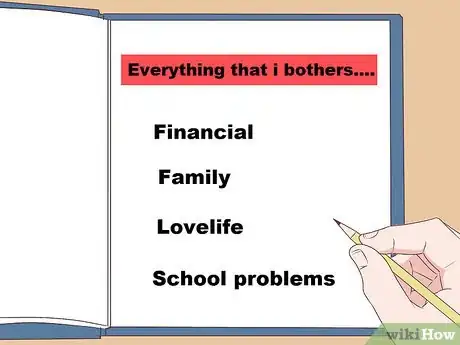



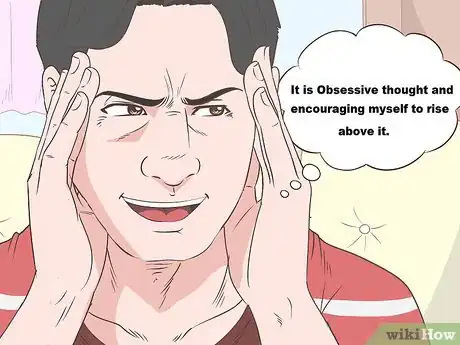




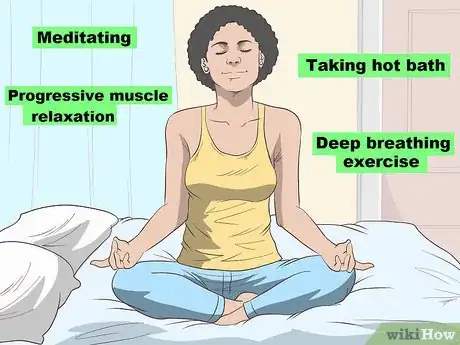
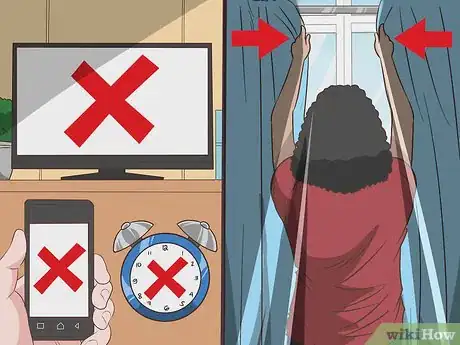
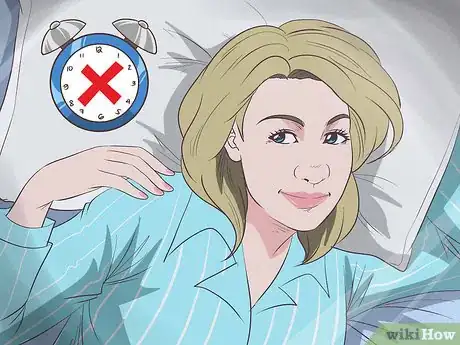
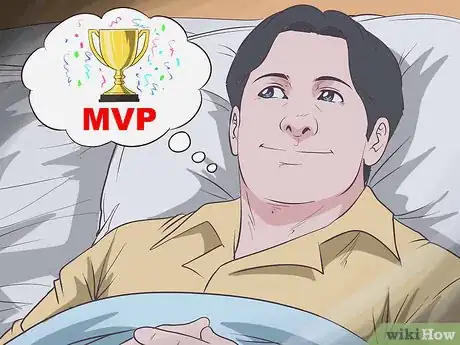


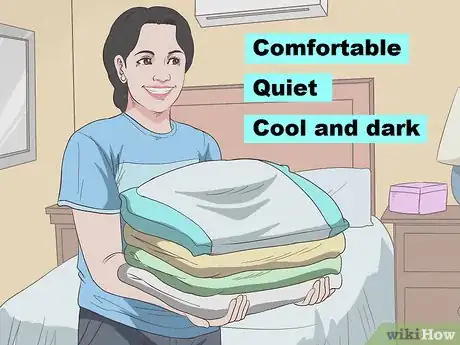
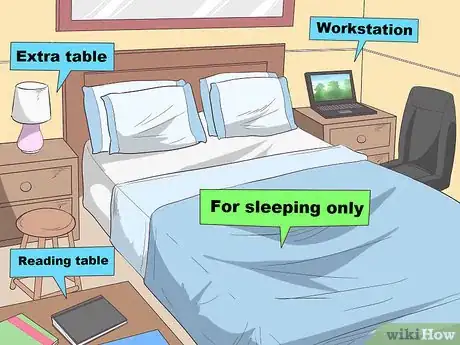
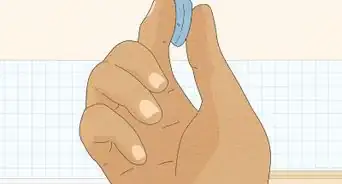


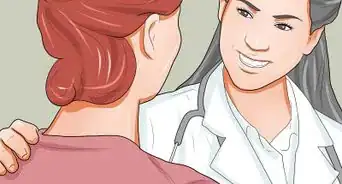



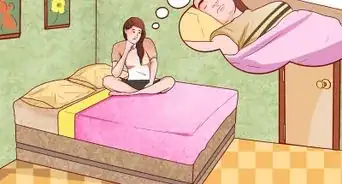




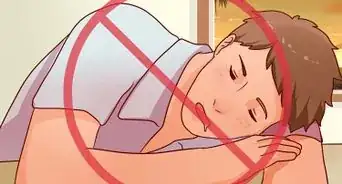









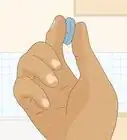






































Medical Disclaimer
The content of this article is not intended to be a substitute for professional medical advice, examination, diagnosis, or treatment. You should always contact your doctor or other qualified healthcare professional before starting, changing, or stopping any kind of health treatment.
Read More...